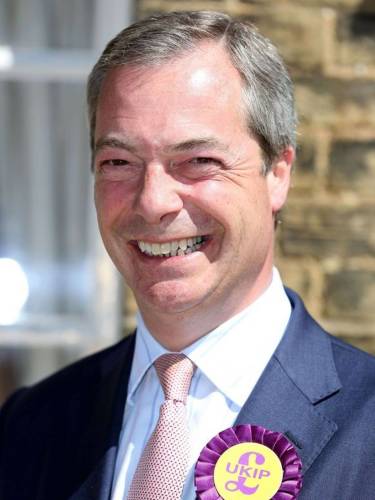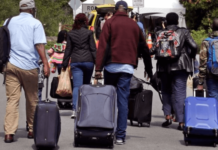
With all the major and not-so-major political parties on the campaign trail in the run up to the European and local elections later this month, we are witnessing the first real opportunity for those on the political right to nail their colours firmly to the mast since they were give the gift of a deep recession combined with a sudden unprecedented influx of migrants.
Crises in Arabic North Africa leading to a mass exodus towards Europe and the expiry of the transitional controls that prevented Bulgarians and Romanians, EU members since 2007, from heading to the UK for work, have served to stir up animosity towards those groups, which has inevitably leaked over towards established migrant groups. If Party Election Broadcasts for the BNP, the English Democrats, UKIP et al are to be believed, the blame for the economic quagmire that Joe Public is struggling to escape must, according to right-minded (pun intended) candidates, be shouldered by ethnic minorities.
So the afore-mentioned campaigners for our vote will doubtless be enraged to the point of apoplexy at a new report from the Policy Exchange think tank; A Portrait of Modern Britain, which contains analysis and projections by Professor Philip Rees of the University of Leeds from census data suggesting that 50 per cent of England’s population will be made up of people from various ethnic minorities by 2050 (30 per cent over the UK as a whole).
The analysis suggests that ethnic minorities will move out from the UK’s three largest cities and spread across the country; many ethnic minority immigrants to the UK live in London, Birmingham and Manchester. 50% of Britain’s minority population lives in these three cities alone. Previous waves of immigrants throughout the centuries have followed similar patterns of migration, settling in poor areas of major cities before becoming more affluent and moving out into more affluent areas.
The analysis is based on data gathered from the last three UK national censuses carried out once every ten years since 1991. The survey finds that 14% of the population of the UK, some 8m people, belong to an ethnic minority. The five largest ethnic minorities are Indian (1.41m), Pakistani (1.12m), Black African (0.99m), Black Caribbean (0.59m) and Bangladeshi (0.45m).
The report says that, over the last decade, almost all (80%) of the UK’s population growth has been amongst the ethnic minority populations. The white population has stayed about the same size whereas the ethnic population has doubled. The next largest, and fastest growing, ethnic grouping is ‘mixed race’. Ethnic minorities now account for only 5% of the population aged over 60 but 25% of the population aged under 5.
The report is optimistic about the future. It states that ‘90% of white and minority residents feel that their local area is a place where people from different backgrounds get on well together’. Further, many ethnic minority Britons identify themselves solely as ‘British’ rather than as part of a minority. 71% of Bangladeshis identify themselves as ‘British only’. Ethnic minorities are ‘three times more likely that the white population to feel that ‘being British’ forms some part of their identity’.
The rise in ethnic minority populations poses a considerable electoral problem for the Conservative Party, since statistics show that voters from ethnic minorities vote overwhelmingly for the Labour Party. 68% of all minorities voted for Labour in the general election of 2010 whereas only 16% voted for the Conservatives. A further 14% voted for the centrist Liberal Democrats.
If the demographic predictions contained in the Policy Exchange report prove correct, then the Conservatives will find it increasingly hard to win an election in future.










